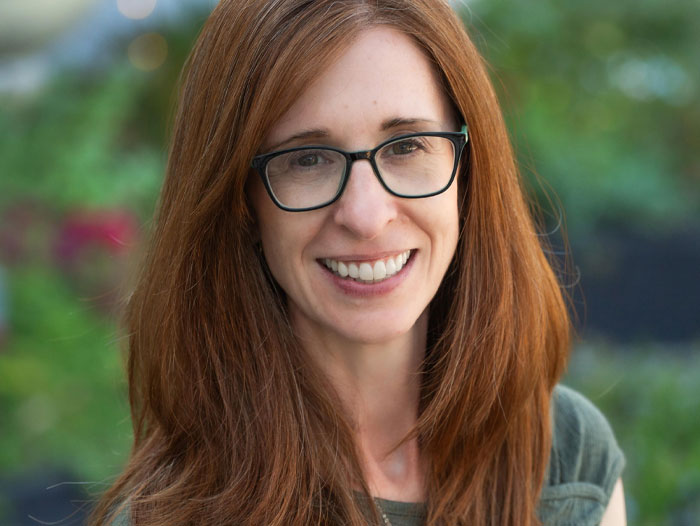EFI Celebrates 10th Anniversary of First Certification
December 2, 2024 | 4 min to read
GoodFarms has celebrated its 10th anniversary of certification with Equitable Food Initiative, showcasing that a more equitable food system is both sustainable and profitable. By engaging farmworkers and empowering them through education, GoodFarms has delivered over $11.5 million in bonuses and improved product quality. Amalia Zimmerman-Lommel emphasizes the importance of leadership in fostering this cultural shift, proving that social responsibility can create a healthier, sustainable food supply chain, while emphasizing transparency and commitment for industry-wide implementation.

GoodFarms Proves That a More Equitable Food System Is Not Only Possible but Sustainable and Profitable
WASHINGTON – Equitable Food Initiative, the workforce development and certification organization that partners with growers, farmworkers, retailers and consumer groups, celebrates the 10th anniversary of its first certification with GoodFarms, who has gone on to certify its entire supply chain and generate more than $11.5 million in bonuses for its workers.
Amalia Zimmerman-Lommel, director of social responsibility for GoodFarms, has been deeply involved in the process of certifying the company’s full supply chain, both owned and contract farms, from the Central Coast of California to Baja California Sur, Mexico. Reflecting on the journey, she recalls how the company’s approach to social responsibility has evolved over the years.
“When we started, we were primarily focused on ensuring compliance with laws. Through EFI, we learned that true social responsibility is about partnering with and engaging farmworkers directly and giving them the education and empowerment needed to actively participate in ensuring that standards are met.”
“Reaching this milestone is a testament to a lot of hard work, including the enduring dedication of our partners and their collective commitment to transforming the agricultural industry for the better,” remarked EFI Executive Director Peter O’Driscoll when asked about the accomplishment.
EFI certification is distinct because it goes beyond mere compliance with local and federal laws. The program focuses on engaging the workforce at every level, making the certification worker-led. Workers are trained to understand the EFI certification standards, identify when they are not being met and bring the issue forward to the worker-manager collaborative team. This approach not only creates a safer and healthier working environment but also enhances the quality of the food produced, contributing to a more sustainable food supply chain.
Zimmerman-Lommel points out that this cultural shift didn’t come easy. “At first, many workers wondered why they should go beyond their traditional roles of harvesting or weeding. But once they understood that their participation would improve their quality of life and the quality of the product, things began to change.” She emphasized that good leadership and fully embracing the program is crucial in driving this change.
This comprehensive approach has resulted in a more engaged workforce, better product quality, and improved relationships with both customers and consumers. Zimmerman-Lommel proudly notes that the EFI-certification label found on GoodFarms’ berries, “Responsibly Grown, Farmworker Assured,” truly represents the values of the workers who drive the program.
LeAnne Ruzzamenti, director of marketing and communications at EFI, noted that this milestone of reaching 10 years of EFI-certified farms highlights the two companies’ pioneering role in social responsibility as the broader industry begins to focus on field-level social responsibility through the Ethical Charter Implementation Program (ECIP). “GoodFarms provides a best practice to the industry and shows that social responsibility can be successful at the field level and create long-term positive benefits.”
Zimmerman-Lommel adds how GoodFarms proves that social responsibility at all levels of the agricultural supply chain is achievable. “You can engage with farmworkers and partner with them to create a healthier, more equitable, more sustainable food supply chain. It’s not easy, because you are dealing with humans who bring their own aspirations, thoughts and goals, but it is achievable.”
Zimmerman-Lommel expresses hope that the gold-star ratings EFI-certified farms achieve under ECIP will soon translate into more purchase orders from retailers. She believes that the efforts put into achieving certification and creating a worker-led, socially responsible culture throughout the supply chain will pay off for farms and workers alike.
For farms looking to embark on this journey of social responsibility, Zimmerman-Lommel offers clear advice: “Take the process seriously, roll up your sleeves, and commit to the work.” She highlights the importance of transparency, engaging with the workforce and understanding that change takes time but is ultimately worth the effort.
Learn more about EFI certification and the Ethical Charter Implementation Program at equitablefood.org.
About EFI
Equitable Food Initiative is a capacity-building and certification nonprofit that works to improve the lives of farmworkers and drive business performance by integrating worker voice and engagement throughout the supply chain. As a multistakeholder organization, EFI brings together growers, farmworkers, retailers and consumers to create assessment, training and organizational development programs that support continuous improvement and address the industry’s most pressing problems. For more information about Equitable Food Initiative, visit equitablefood.org.
